Introducing – Omega Seamaster Planet Ocean Deep Black (Ceramic GMT) – Darker than The Deep Sea – REVIEW with live photos, specs & price
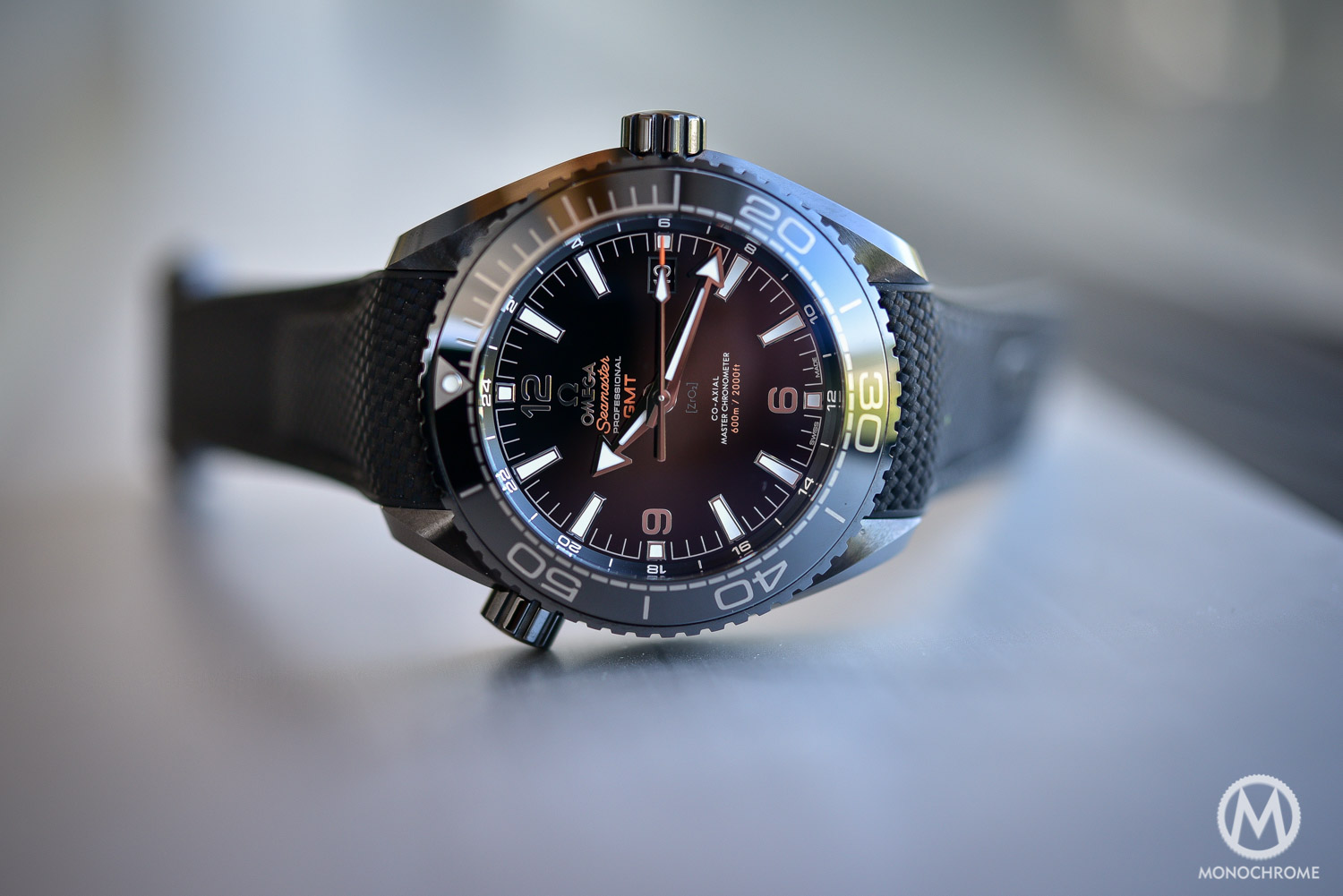
What is the color of the deep sea? Blue? Navy blue? No, when you reach 600 meters, the sea is black, pitch black in fact. At this depth, everything turns dark and no color can be distinguished anymore. You probably saw us coming with this teaser. Yes, here is it, this is the “raison d’être” of the brand new Omega Seamaster Planet Ocean Deep Black. After the Speedmaster Dark Side of the Moon, here is the full black, full ceramic Planet Ocean, the hefty, technical and robust dive watch of the Biel-based brand. Antimagnetic, Master Chronometer certified, with GMT function, revised display and a lot of technical improvements… No more introducing words, let’s look at the Omega Seamaster Planet Ocean Deep Black – and like the Stones would say, “No colors anymore, I want them to turn black“.
This year, after focusing on the Globemaster and Speedmaster in 2015 and the Seamaster 300 in 2014, Omega had a strong focus on its professional dive watch, the Seamaster Planet Ocean. Not only have they brought into almost all the editions the new family of movements, the Master Chronometers (the new, METAS certified, antimagnetic co-axial calibres) but they also revamped a part of the collection, bringing a new normal 600m edition and a new GMT, with bi-ceramic 24h bezel. Furthermore, the collection now comprises of a superb 39.5mm unisex watch – that we showed you in gold but that also exists in steel – as well as a new chronograph. You thought this was already quite an impressive evolution, but it was without counting on the creativity of the designers and technicians of Omega Watches. After showing us that ceramic could easily be used for all the main parts of a watch with the Speedmaster Dark Side of the Moon (DSOTM), the same idea is now applied on the diver collection, with the Omega Seamaster Planet Ocean Deep Black.
Omega Seamaster Planet Ocean Deep Black – The first Ceramic Planet Ocean
Until now, the professional-oriented dive watch from Omega, the Seamaster 600 Planet Ocean, was available in a vast range of materials, going from stainless steel to titanium or red gold. Omega even introduced a bit of ceramic in the collection, with most of the editions showing a ceramic bezel, with some having the Liquidmetal technology (indexes and scales directly and seamlessly integrated in the ceramic). However, the cases are always and only made with metals, for obvious resistance reasons. Indeed, even if Omega has already showed that it was possible to create a watch almost entirely made in ceramic (case, caseback, pushers, crown, and even the dial), with the Speedmaster (the Dark Side or the Grey Side). But these watches are chronographs; water resistant to only 50 meters. Creating a dive watch entirely in ceramic is not an easy challenge, as the pressure at 600 meters is much different.
In fact, ceramics have completely different properties than metals. Of course, their resistance to corrosion is perfect (quite important for a dive watch, you’ll admit) and they are virtually scratch resistant. That doesn’t mean that they can be resistant to every kind of aggression or environment. In fact ceramics are so solid and rigid that it can break rather easily, while metals are less critical here. The solution, without changing a bite of the shape of the watch, was to craft the case from a solid block of black ceramic. This Omega Seamaster Planet Ocean Deep Black (let’s nickname it the PODB…) is in fact the first real dive watch made fully in ceramic, with 600 m / 60 bar / 2000 ft water resistance. Not only is the case made in ceramic, but this also goes for the crown, the helium escape valve at 10 and the bezel (both the bezel itself and the insert). The dial, with its pitch black glossy finish is also made out of ceramic (as the Zr02 engraving just below the hands will let you know).
Finally, the caseback is also in ceramic. However, this was a major issue for the developers. Indeed, it is impossible to create a screw thread in ceramic, like it is made on a classical steel or titanium watch. Thus, Omega created an oriented caseback, the new and patented ceramic Naiad Lock – Naiad as a reference to the crowns used in vintage Seamaster watches. No need to create a long thread anymore – which would require several turns to be locked. Here, a 60° rotation is enough to lock the caseback and ensure the 600m water resistance.
As said, the Omega Seamaster Planet Ocean Deep Black is visually all about the typical Planet Ocean design and proportions. The case, while being made out of ceramics, remains the same, with the same “lyre lugs” and the same bulky dimension – 45.5mm in diameter and 17.18mm in height. For sure, we’re in front of a big baby here but the new straps, with integrated attachment to the case (which goes downward at 90 degrees at the end of the lugs), are participating to the comfort and, even on my small wrist, the watch remained easy, balanced and (ceramic obliged) rather light. After all, the Omega Seamaster Planet Ocean Deep Black is a toolish diver, not a dress watch (and keep in mind that 43.5mm and 39.5mm steel editions exist – maybe these dimensions will exist in ceramic one day…).
Omega Seamaster Planet Ocean Deep Black – One watch, 4 versions
For this new Omega Seamaster Planet Ocean Deep Black, the Biel-based brand comes not with one watch but with already a small collection, comprising 4 watches, which can be divided into 2 themes. The first ones (Black and Black/Gold) are more lifestyle-oriented products, while the two others (Black/Blue and Black/Red) are more professional tools.
Omega Seamaster Planet Ocean Deep Black – Full Black
This first edition of the Omega Seamaster Planet Ocean Deep Black is simple as it is… entirely black. Everything, from the case, the dial, the crowns or the bezel’s insert are black. The case is half polished, half brushed – the sides and the inner parts of the lugs are brushed (classical Omega finish) while the twisted bevels on the lugs are polished. The insert show a 60 minute scale and numerals in metallic grey, obtained via Liquidmetal technology. This edition is combined with a fabric strap, rubber lined and black stitching. The clasp is in polished ceramic and ceramised titanium.
Omega Seamaster Planet Ocean Deep Black – Black Gold
The second edition of the Omega Seamaster Planet Ocean Deep Black is also lifestyle oriented – let’s agree that it will be more à propos on yachts’ decks than under deep seas. It combines back ceramic (for the case, caseback and dial) with Sedna gold (Omega’s own pink gold) for the hands, the indexes and the crowns (both Helium valve and setting crown). The bezel is also made in Sedna gold, with a black ceramic insert and Sedna gold Liquidmetal diving scale and numerals. On this edition of the Seamaster PODB, with its more luxurious orientation, the strap is made in rubber with a black alligator leather insert, treated to be water resistant – meaning that you can even dare to dive with it, if you so wish.
Omega Seamaster Planet Ocean Deep Black – Black Blue and Black red
These two editions, with their bright accents, are more tool-oriented. The Omega Seamaster Planet Ocean Deep Black Blue and Black Red are indeed showing a different finishing for the case, which is here entirely brushed ceramic. A same finish has been applied on the crowns and on the bezel. The insert shows a same design as the new Planet Ocean 600m 43.5mm showed during Baselworld 2016. The insert is made out of brushed ceramic, with Liquidmetal diving scale in metallic grey. The 15min scale, helpful for divers and decompressions, is here a rubber insert that has been injected and blended with the ceramic, seamlessly (see the detailed photos for more).
Two of these editions are available, one in bright red and one in vivid blue. The choices of the colors is rather interesting. Red is actually the first color that is no longer visible when diving (at only 5 meters under the surface). The red edition will become even more black when diving, for a camouflage look under water. On the other hand, the exact shade of blue on this Omega Seamaster Planet Ocean Deep Black is actually the last color you’d be able to discern when diving – at a depth of 275m. Finally, at 300 meters, the ocean turns entirely black.
The coloured details can be found on the rubber diver scale, for the logos on the crown, on the dial’s inscriptions and numerals, on the GMT hand, on the 24-hour ring and finally on the straps. These editions, much colorful and bolder, with their brushed case, will be more suitable for those looking for a real sports watch.
Details or the rubber insert blended into the ceramic bezel and the Liquidmetal insert in the crown, using a rubber injection (also used for the He in the helium valve).
Omega Seamaster Planet Ocean Deep Black – A proper Diver, with GMT function
As we showed to you, with its 600m water resistance, its Helium escape valve and its legible diver scale on the bezel, the Omega Seamaster Planet Ocean Deep Black is all about a diver watch, but with a GMT function. However, until now, the combination of the Planet Ocean with the GMT Function was somehow disappointing for certain purists, as the diver scale was replaced by a 24-hour ring on the bezel. And this leads to a watch that can’t be called “dive watch” anymore, in the mean of the ISO 6425 norm. This was the case for the recent Omega Seamaster Planet Ocean GMT with Master Chronometer movement and two-tone ceramic bezel. Omega found a solution in the Omega Seamaster Planet Ocean Deep Black that will please both the professional divers and those who needs / wants a GMT function.
The 24-hour ring is now located on the periphery of the dial, right next to the GMT hand, which means that the Seamaster PODB keeps the functionality of the diver scale together with a legible display of a second time-zone – and this position seems actually rather natural, as the GMT hand touches the 24-hour ring. This was of course possible because of the increased diameter compared to the normal Planet Ocean GMT, which measures 43.5mm.
Omega Seamaster Planet Ocean Deep Black – Calibre 8906 Master Chronometer Co-Axial
This Omega Seamaster Planet Ocean Deep Black, like the rest of the Planet Ocean collection, now integrates the new family of antimagnetic, METAS certified Master Chronometer movements. The Co-Axial Master Chronometer Calibre 8906 runs at an unusual frequency of 25’200 vph (3.5Hz) – according to Omega, the best speed for the co-axial escapement that they use – for more about the Co-Axial, look at the short video (here). It also features the anti-magnetic parts that allow it to resist to 15,000 Gauss and thus, to pass the METAS Certifications – an independent certification that is not exclusive to Omega, even if they are now the only one to technically be able to use it, knowing the complexity to achieve such a movement. For more, you can read our report after visiting the METAS facilities here (part 1) and here (part 2).
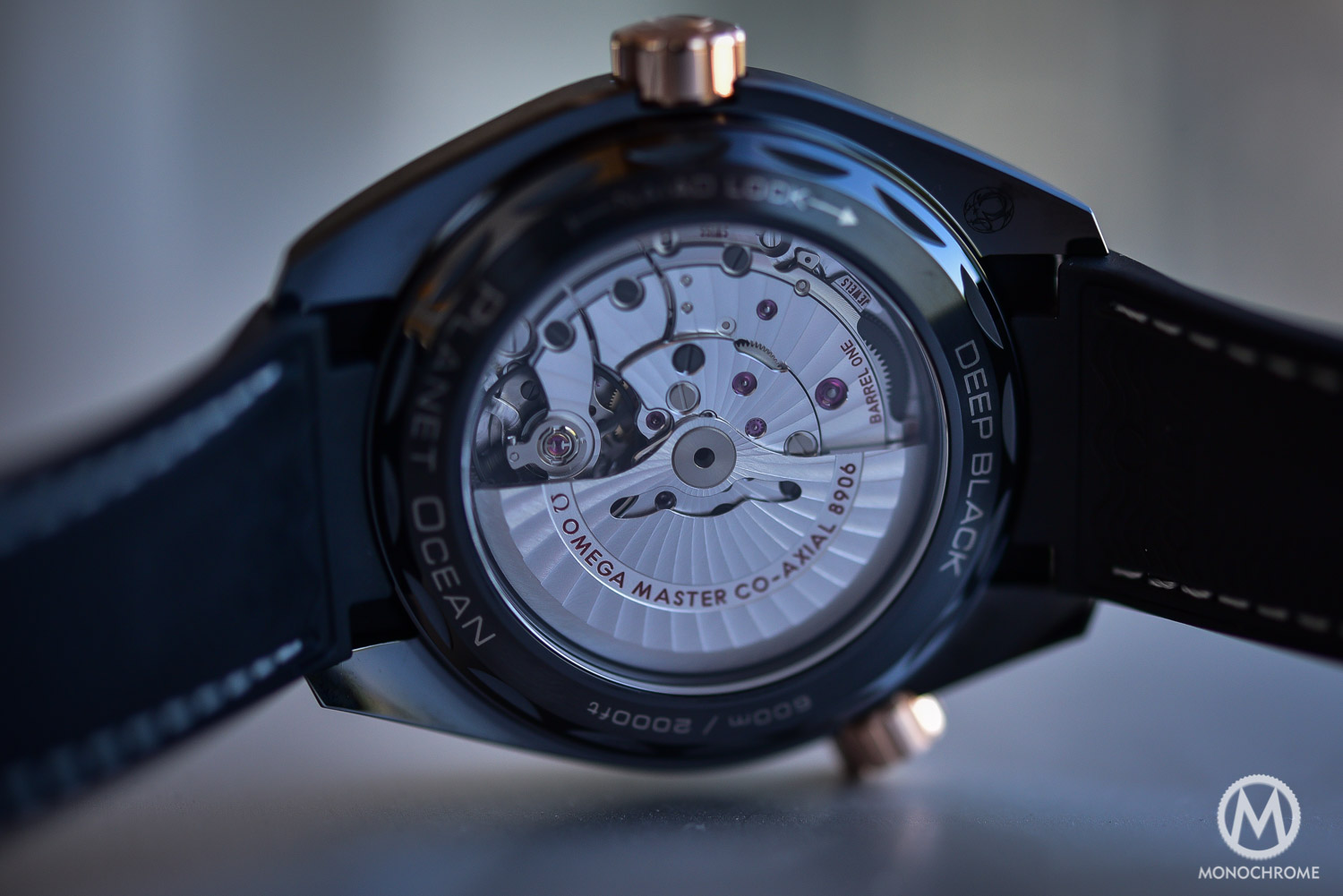 The Calibre 8906 of the Omega Seamaster Planet Ocean Deep Black, shared with the normal Planet Ocean GMT, is an automatic movement, with 2 barrels in series for 60 hours of power reserve, a GMT function adjustable via the crown by one hour increments, with silicon balance spring and of course, the co-axial escapement. The movement is finished as all the new calibres of the brand, with beveled bridges, blackened screws and Geneva waves in arabesque.
The Calibre 8906 of the Omega Seamaster Planet Ocean Deep Black, shared with the normal Planet Ocean GMT, is an automatic movement, with 2 barrels in series for 60 hours of power reserve, a GMT function adjustable via the crown by one hour increments, with silicon balance spring and of course, the co-axial escapement. The movement is finished as all the new calibres of the brand, with beveled bridges, blackened screws and Geneva waves in arabesque.
Omega Seamaster Planet Ocean Deep Black – Verdict, specifications & Price
All together, Omega again brings a strong technological content with this Seamaster Planet Ocean Deep Black. Not only they innovate on the movement-side but also on the materials. Don’t see it as another ceramic watch, as achieving a 600m water resistance with ceramic is not easy AT ALL – and that’s also why no other manufacture did it yet, at least for a watch capable of 600m and with all case parts in ceramic. Overall, the Seamaster PODB is visually pleasing and well executed. Its design is achieved and well thought, including the fact that the GMT function doesn’t mean to get rid of the diver scale anymore.
On a personal basis, I tend to dislike black watches. First, I don’t especially like the look (that’s completely subjective…) and then, they are usually made with coated metals, which are not very resistant. Here, ceramic allows a superb resistance, a lightweight case and an aspect that is technical, especially on the blue and red editions, with their brushed finish. Furthermore, the black color tend to make it looks smaller, which is not bad considering the 45.5mm diameter. I must admit that this is certainly the Planet Ocean I prefer for now. On a more objective side, the overall execution and technology deployed must be recognized. Omega is certainly amongst the main innovators in the industry, on every aspects.
Prices
- Full Black / Black Blue / Black Red: 10,400 CHF (before taxes)
- Black and Sedna Gold: 13,900 CHF (before taxes)
Specifications of the Omega Seamaster Planet Ocean Deep Black
- Case: 45.5mm diameter x 17.18mm height – black ceramic case, caseback, crown, bezel – sapphire crystal on front and on the caseback – 600m water resistant
- Movement: Omega Co-Axial Master Chronometer Calibre 8906 – Automatic – 60h power reserve – 25,200 vibrations/h – hours, minutes and seconds, date, GMT function
- Strap: black fabric with black rubber lining – finding buckle in black ceramic and ceramized titanium
- Additional: METAS Certified – 4-year warranty

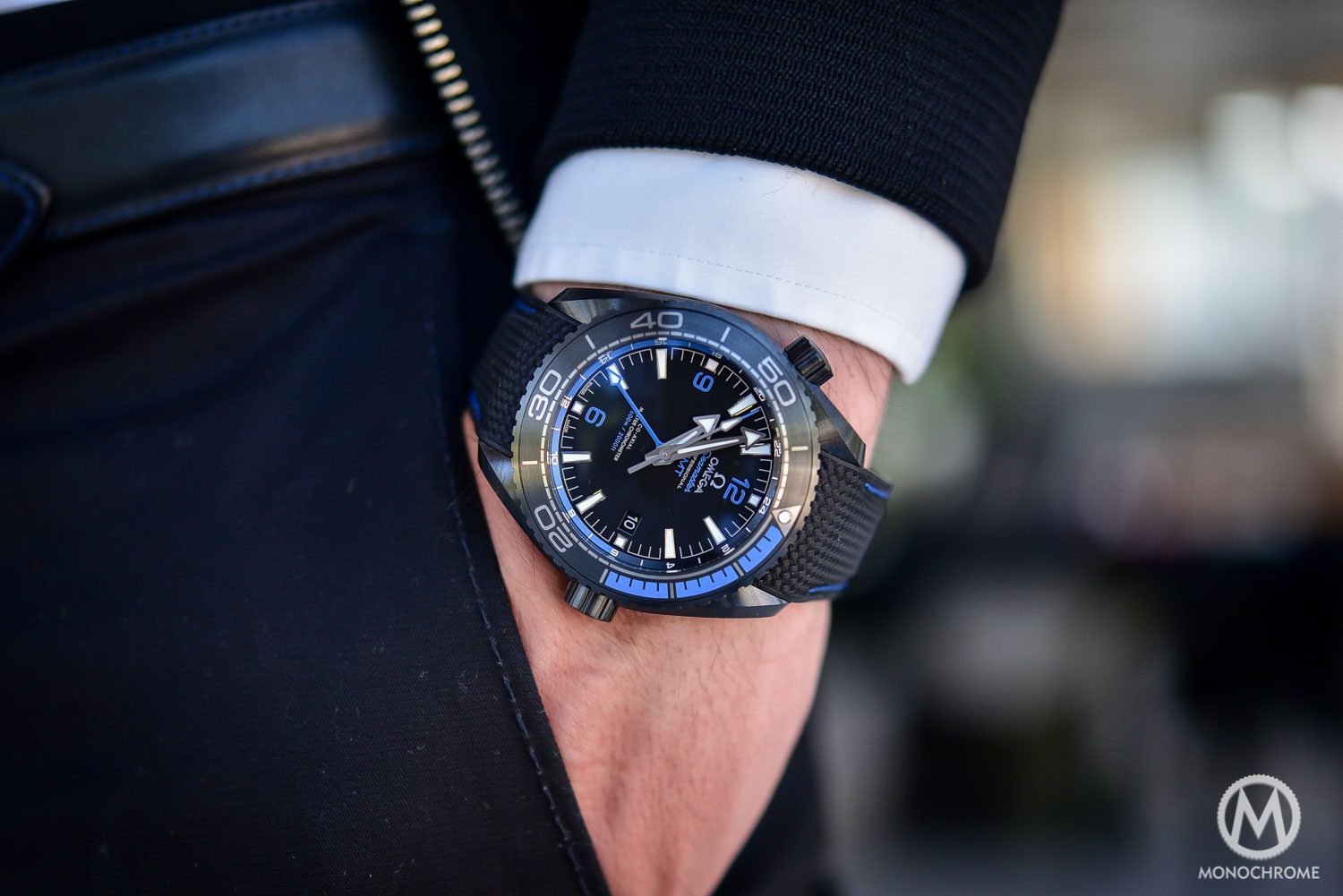
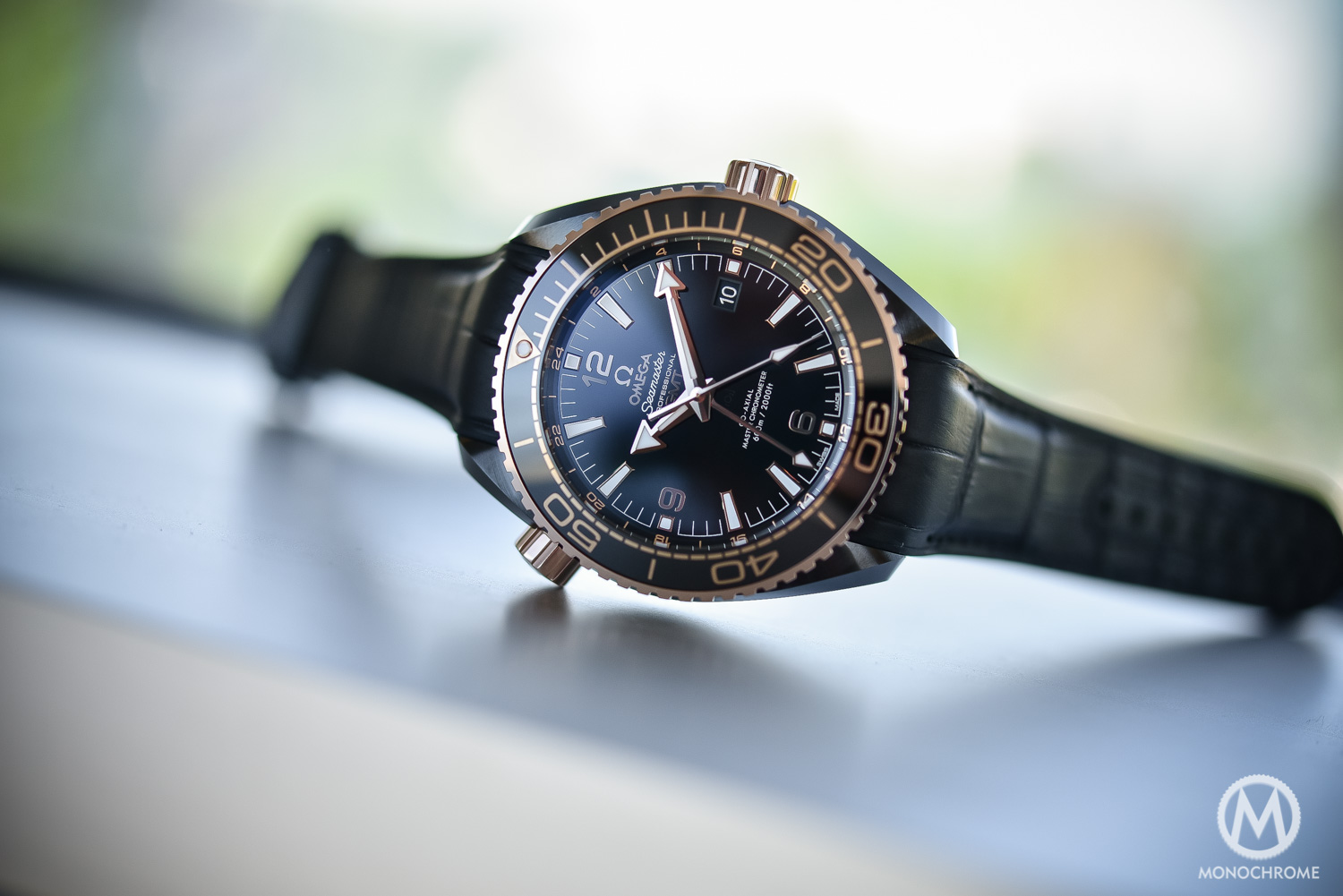
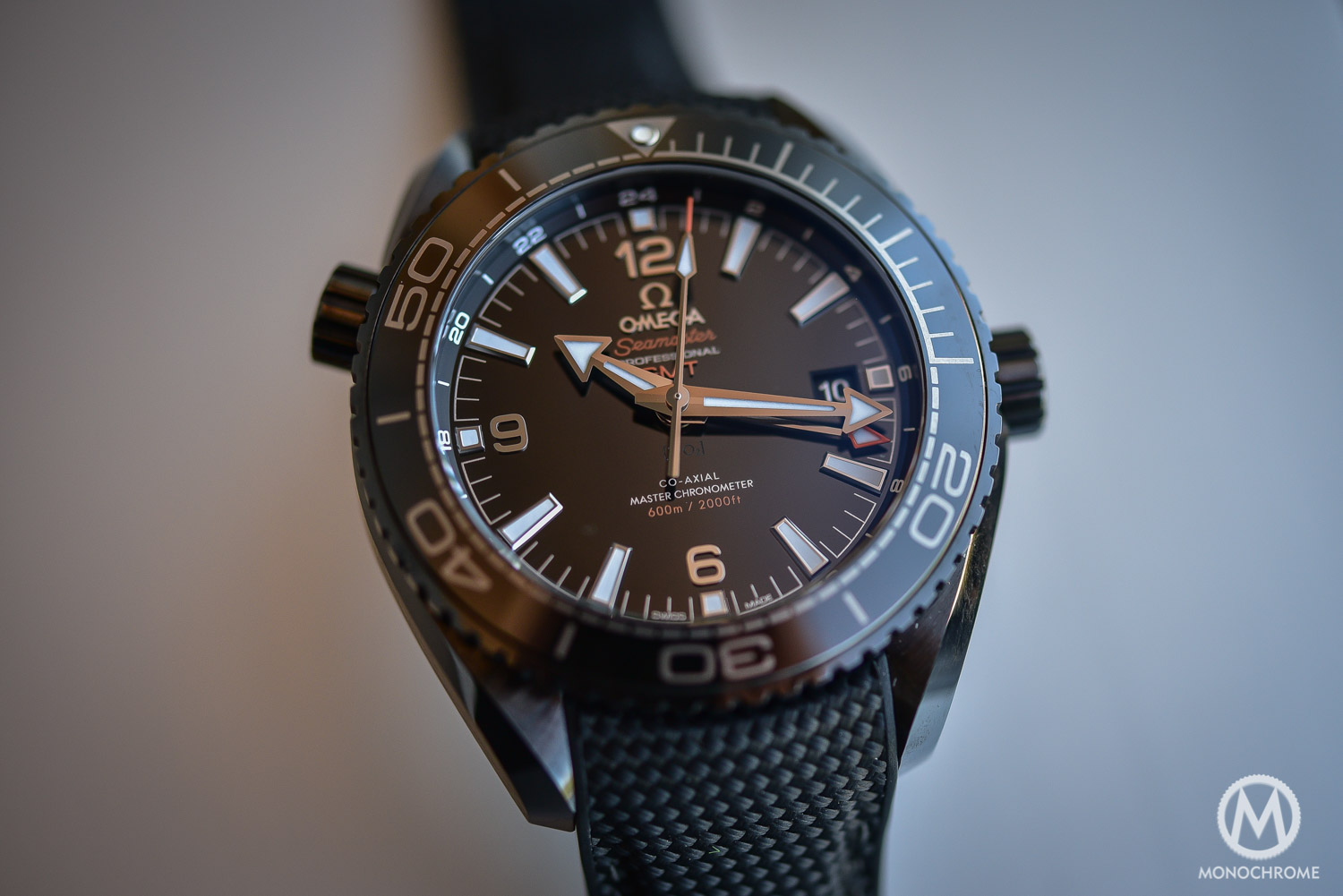
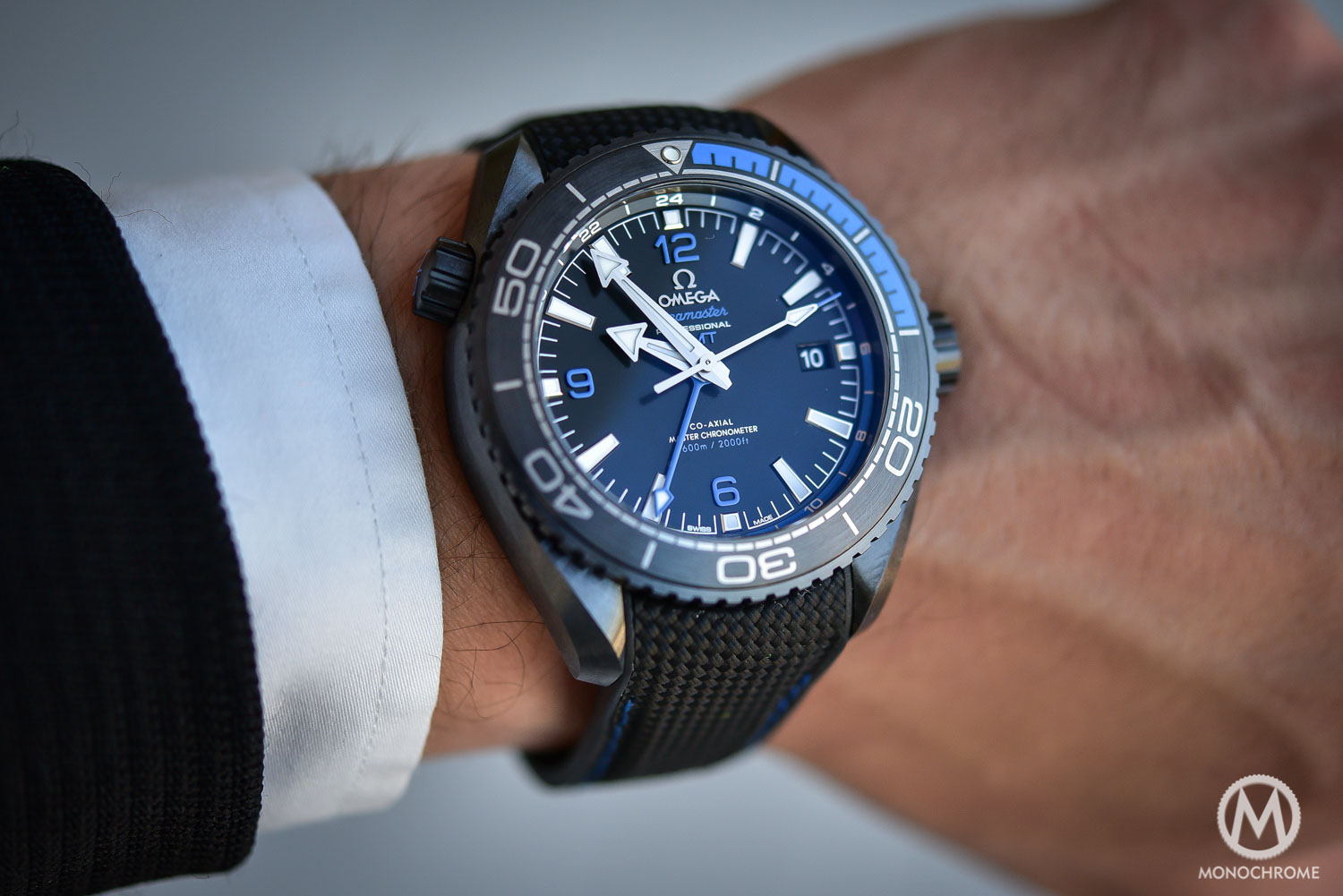
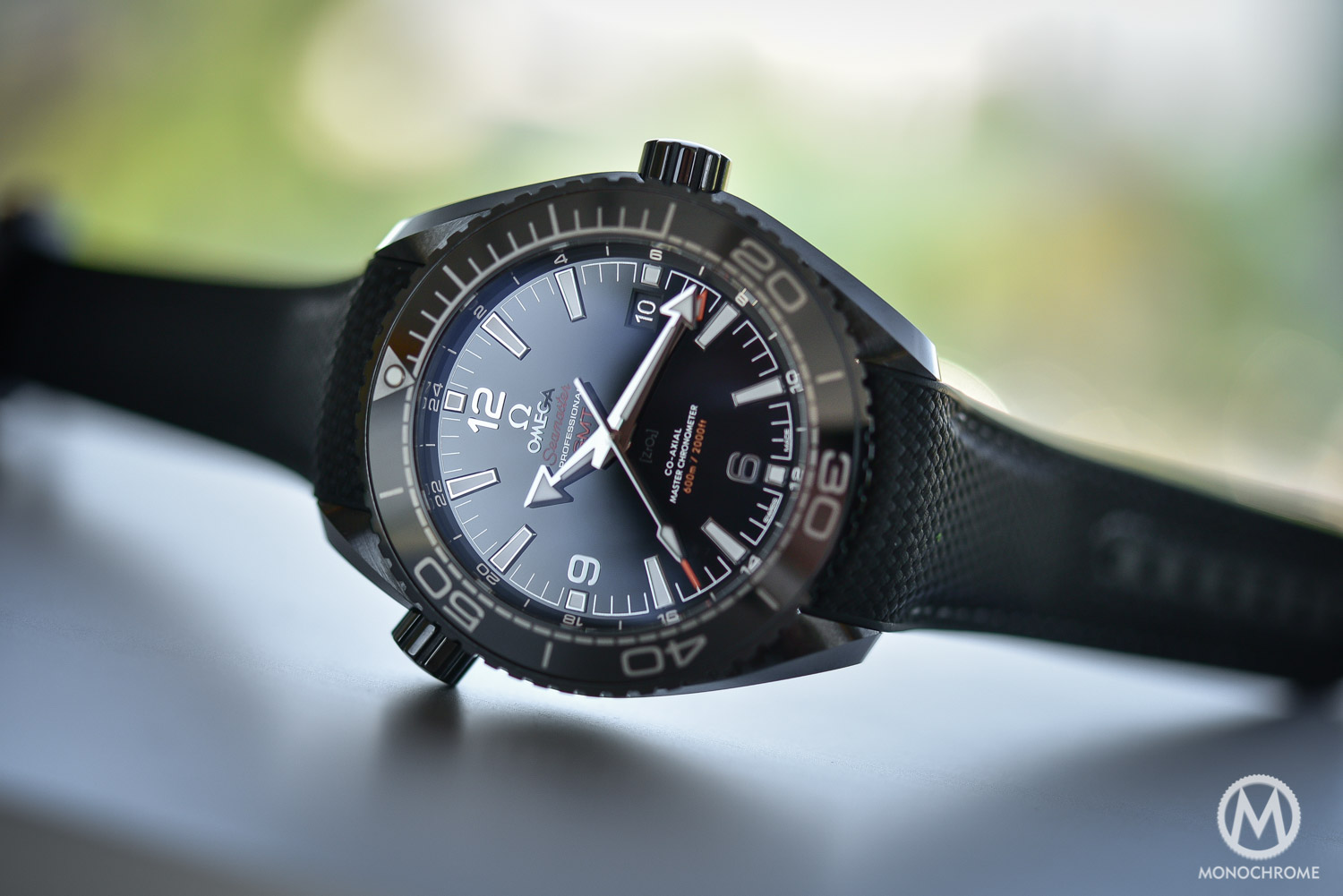

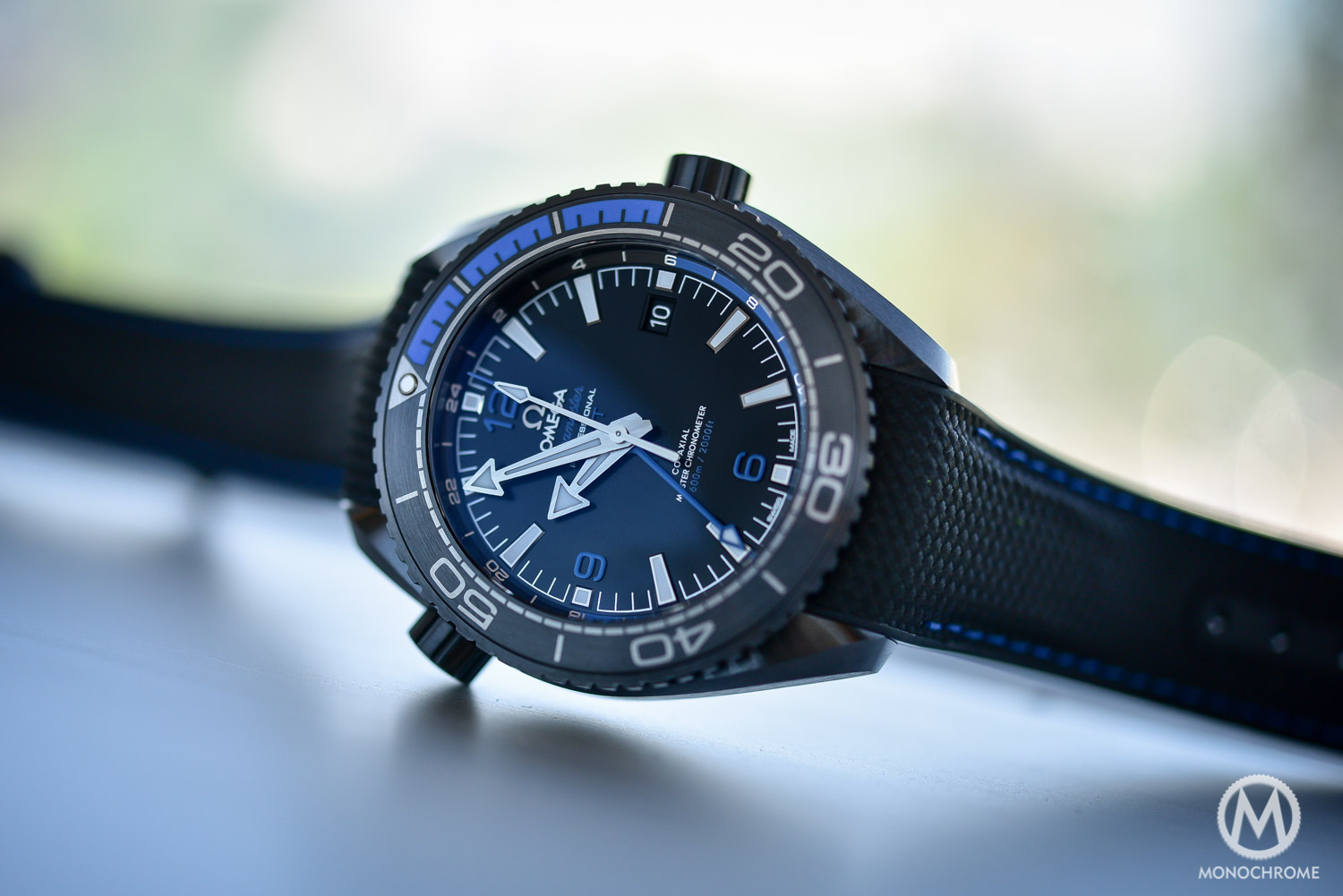
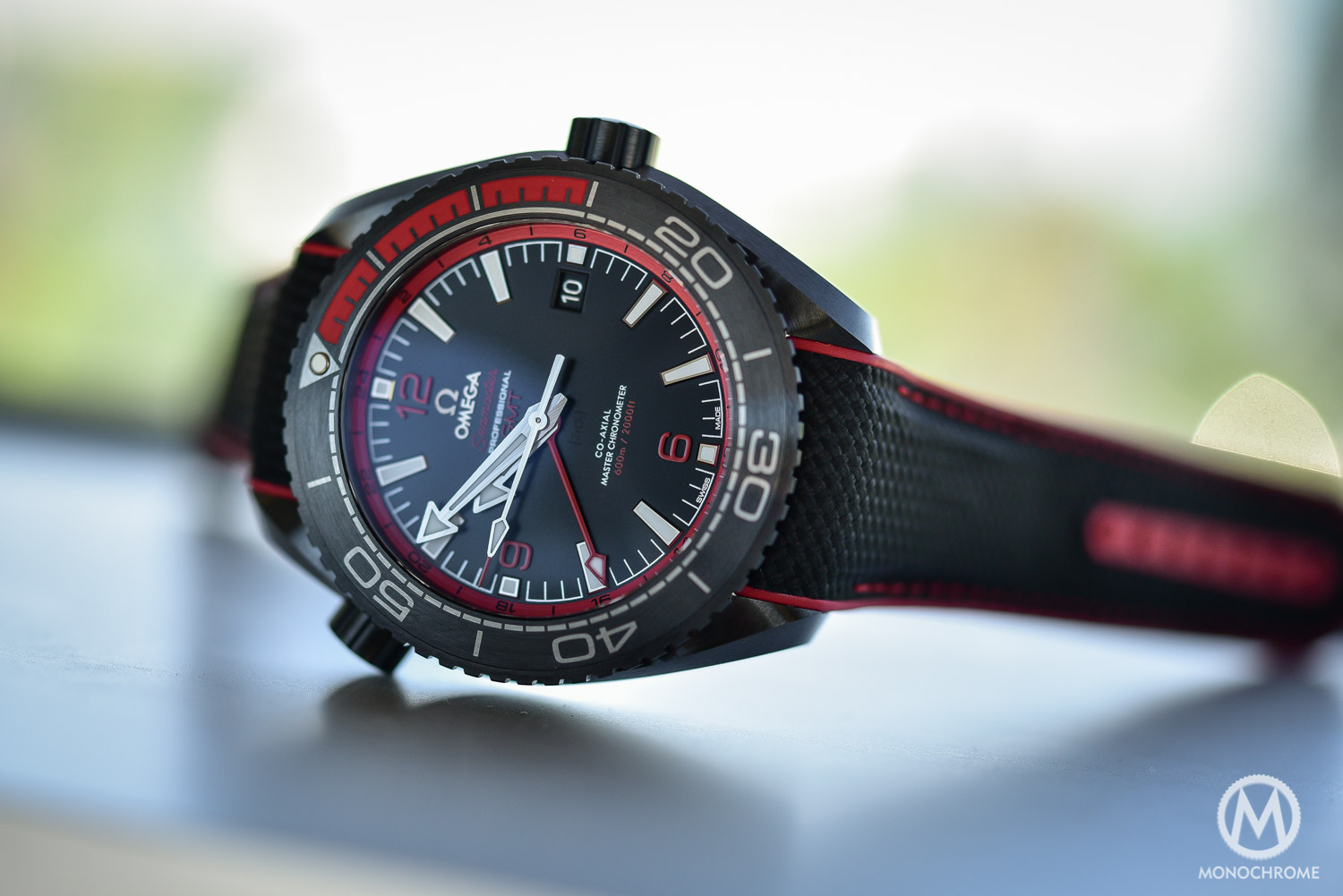
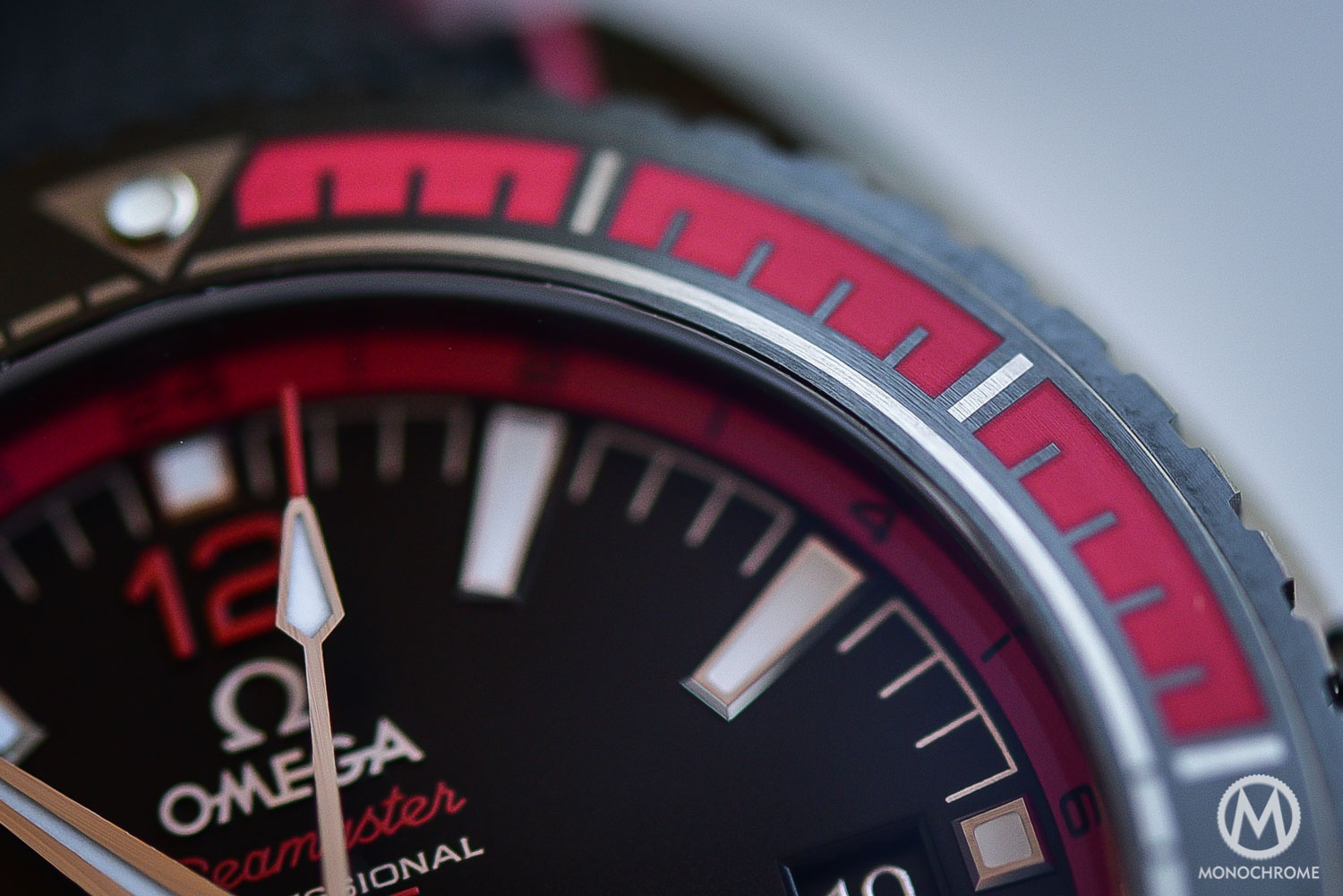
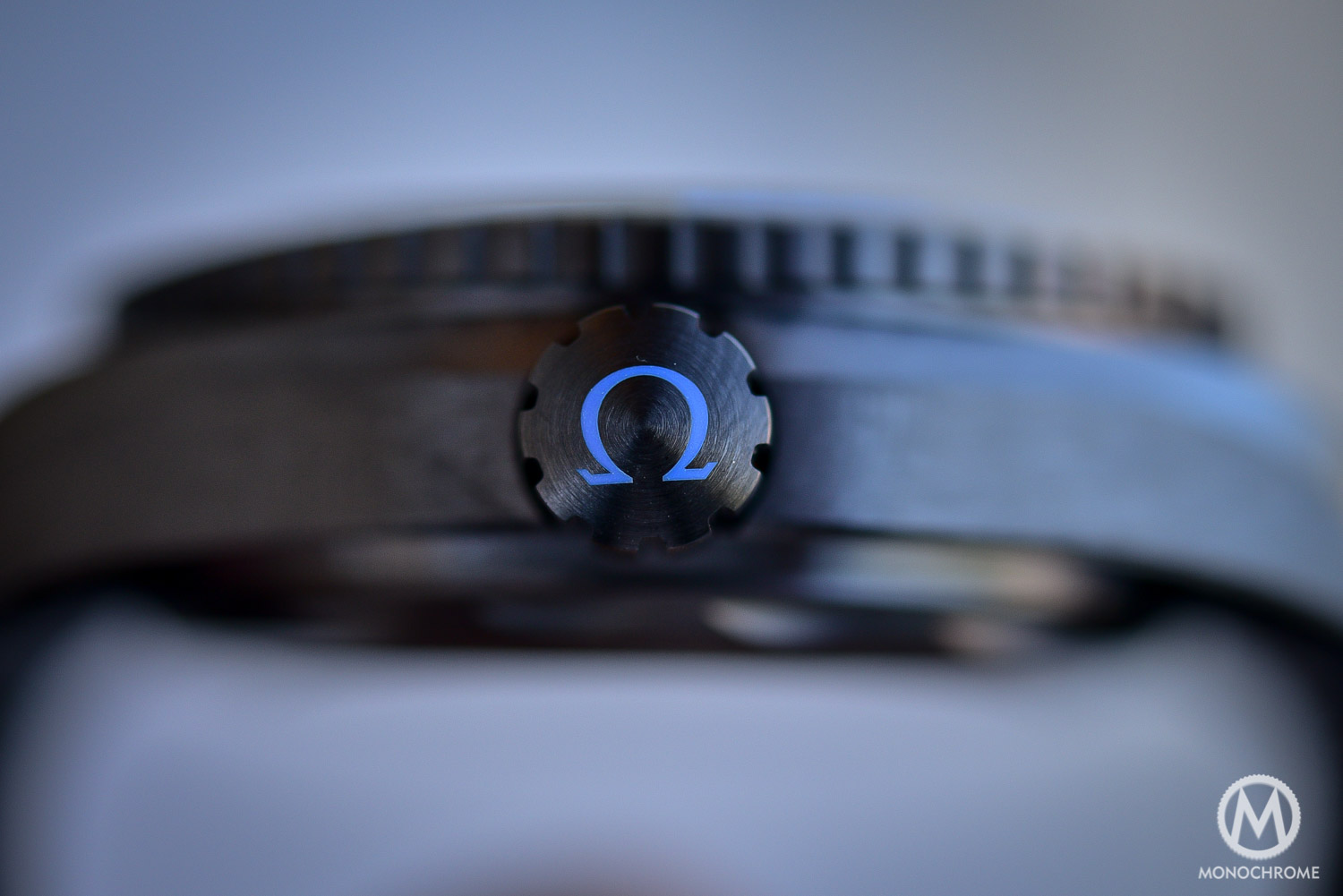
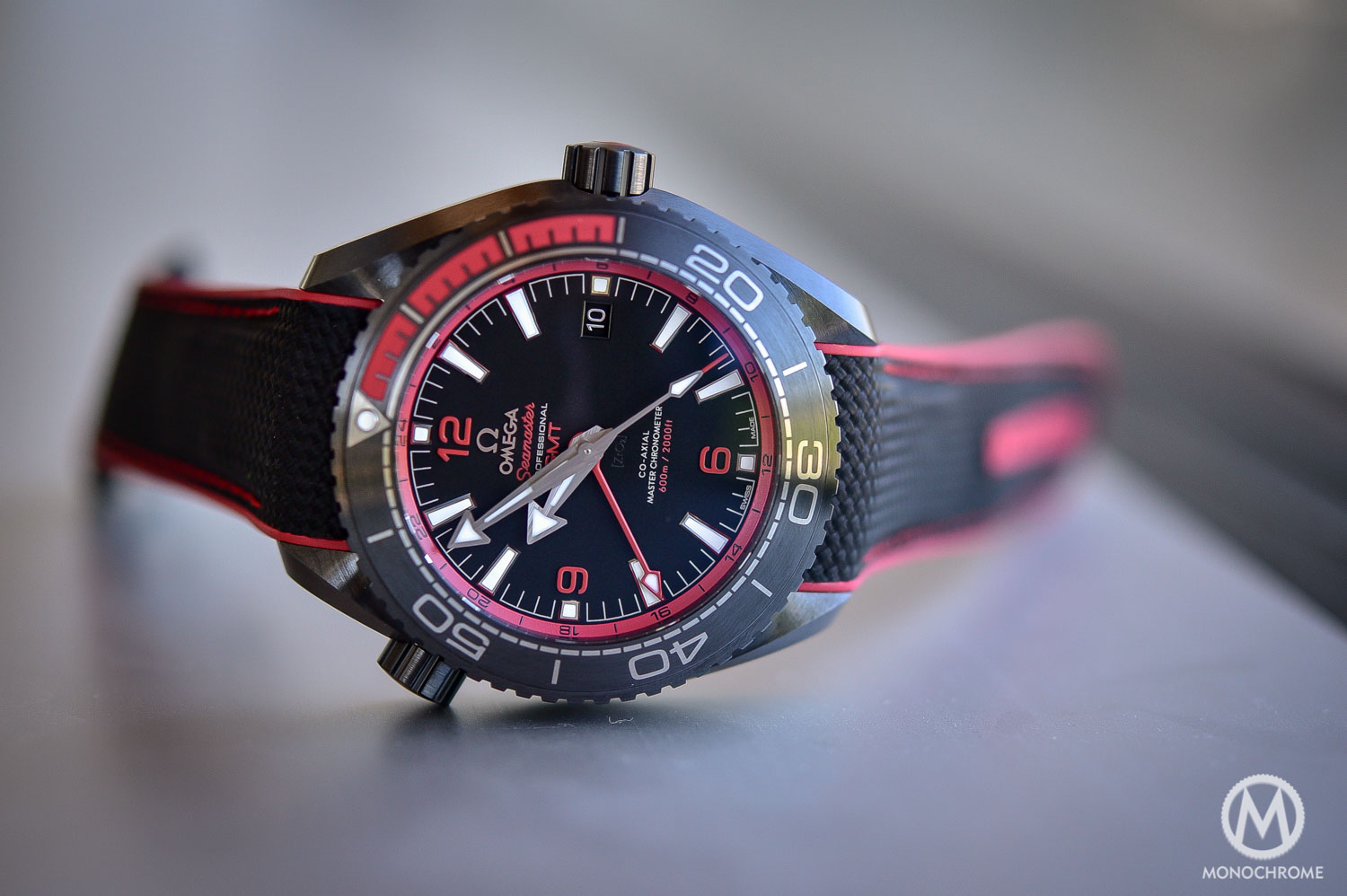
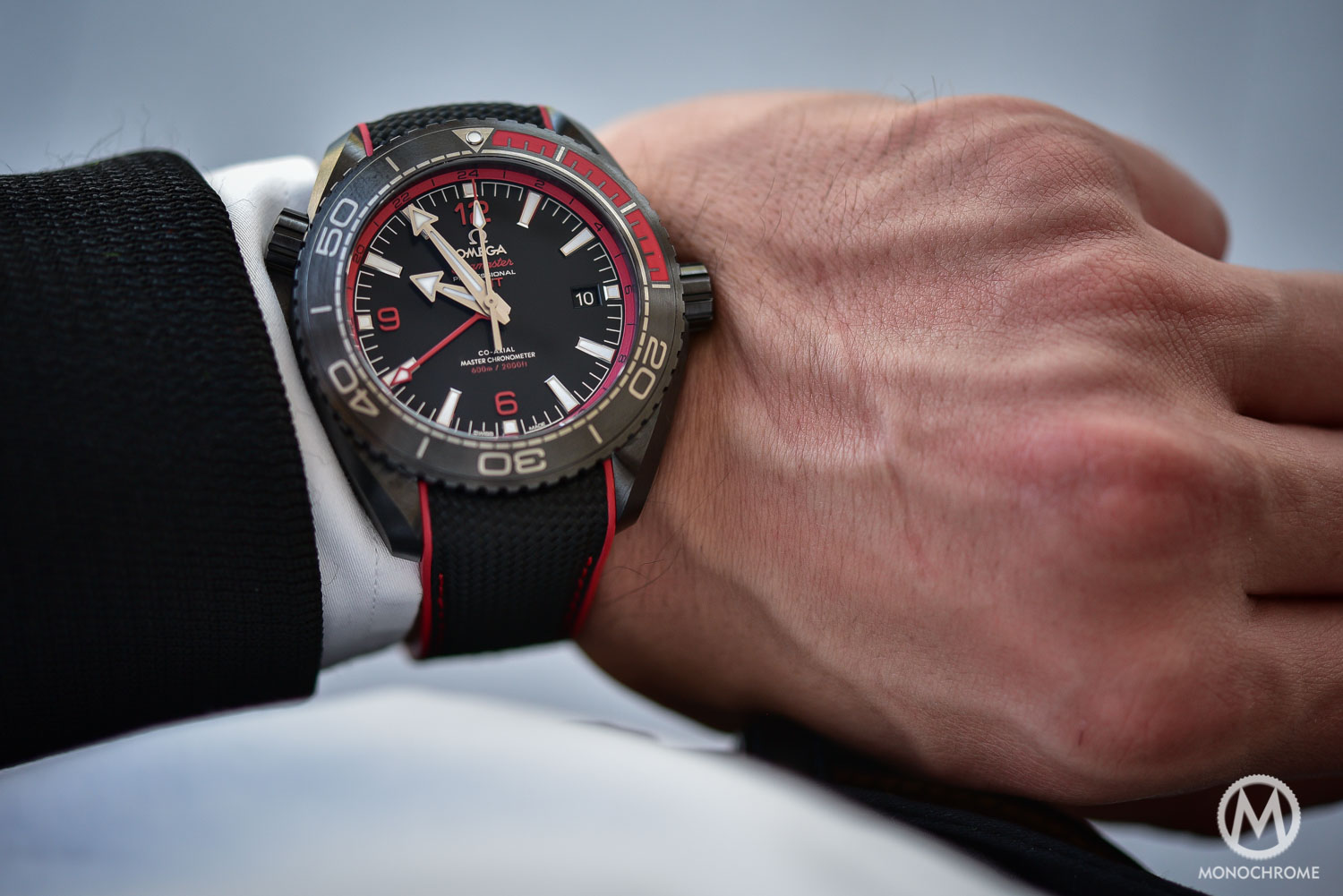
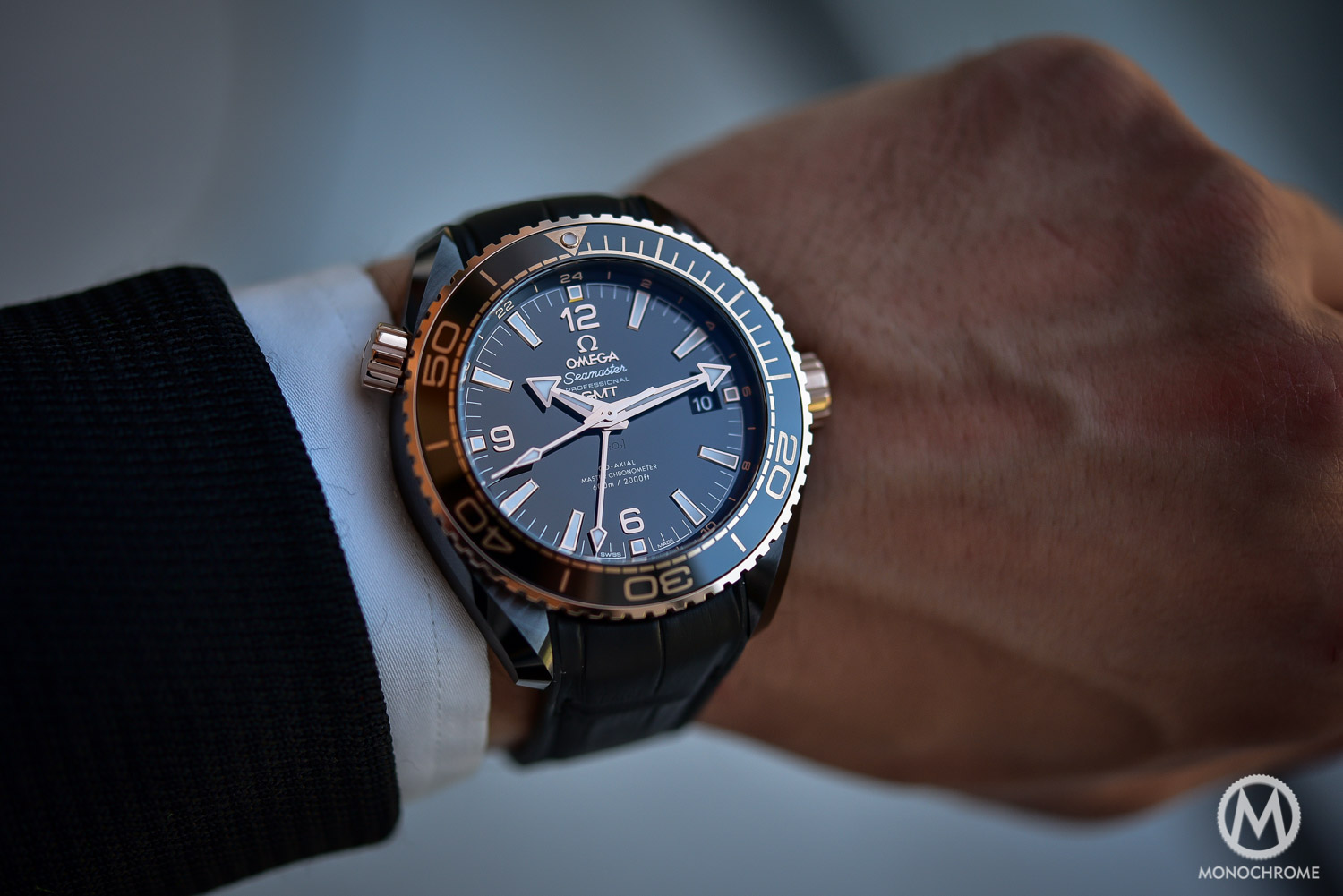
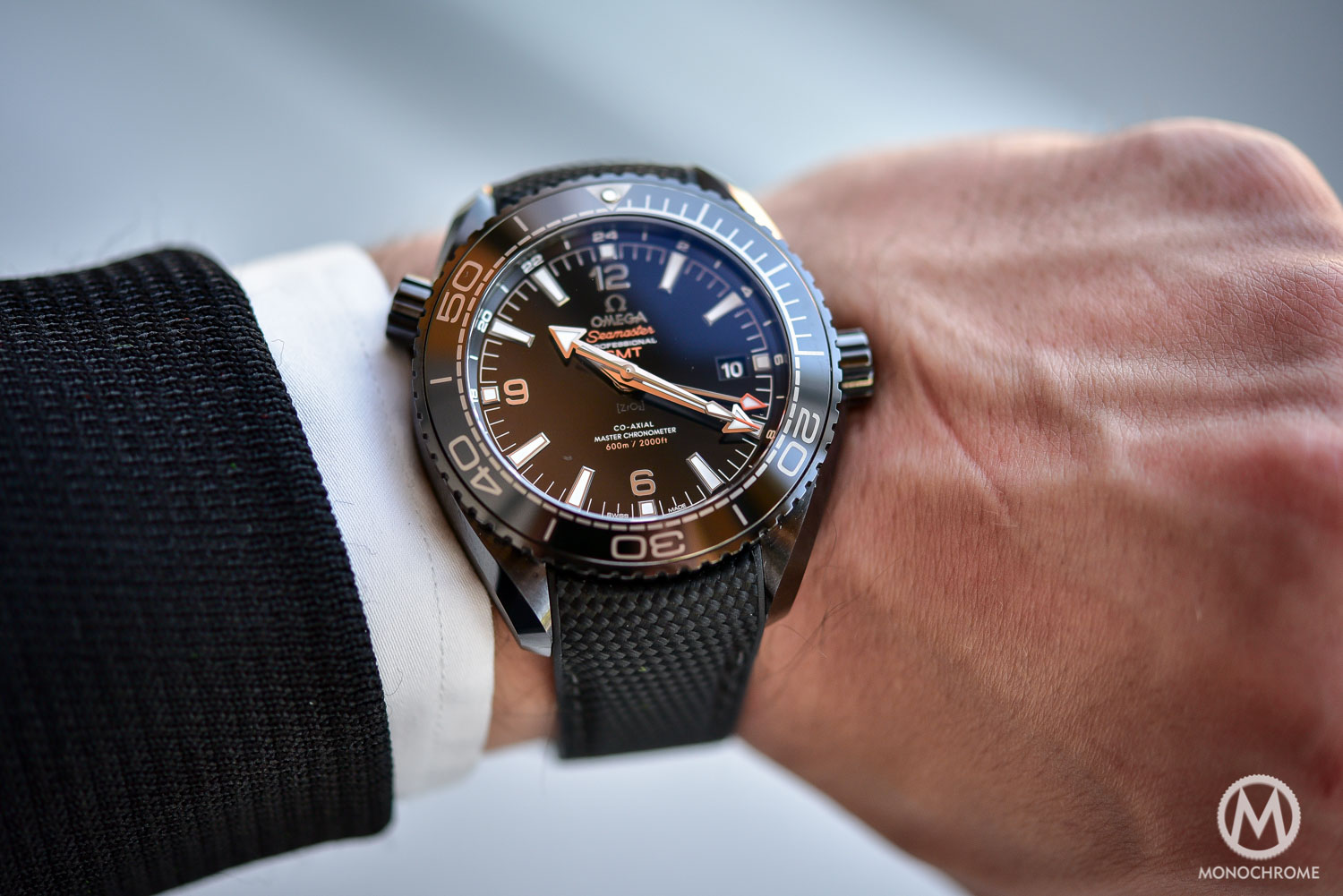

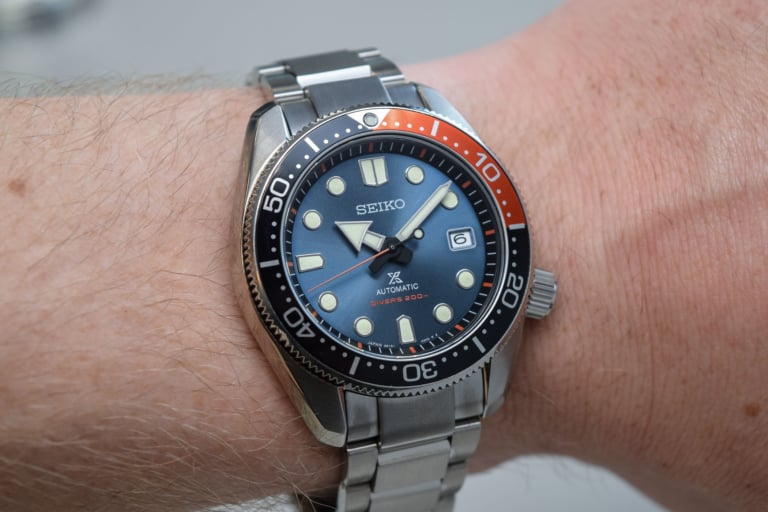
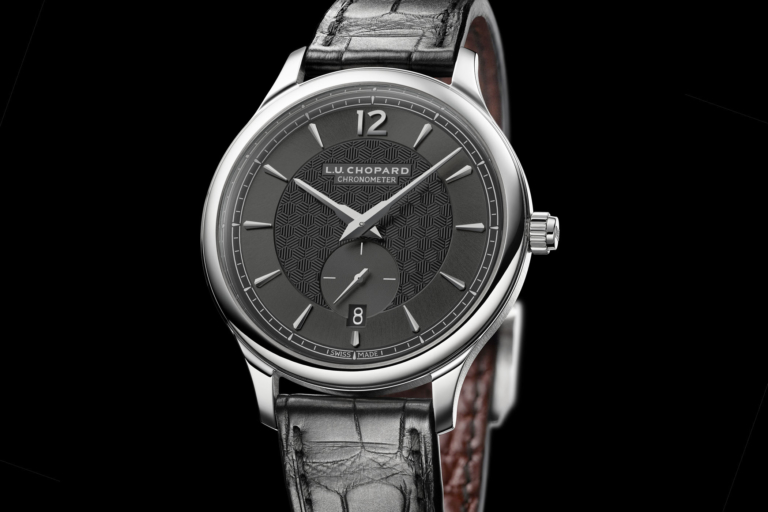
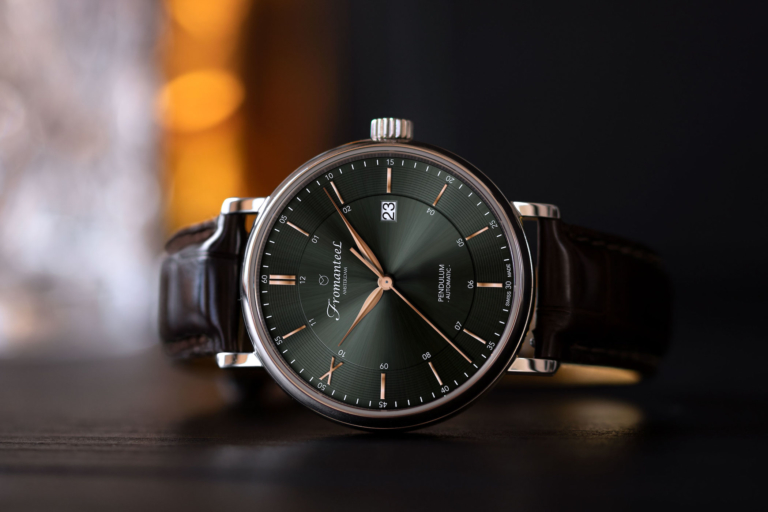
4 responses
I don’t know why they didn’t include a gold rotor for the Black and Sedna Gold version. It just looks like they skimped out…
Is it wise to use crramic for a ‘professional’ dive watch? I mean if it does get that dark down there……
Top notch review, very thorough and informative.
I wonder what is the weight of this baby…I assume ceramic should be lighter than steel or even titanium (never hold a ceramic watch in my hand). Beautiful watch anyway, the full black edition is my favourite….and my birthday date isn’t that far….
Only question is when we will see something really new in Omega divers portfolio; since some time we’re seeing variations on the same model (this applies – unfortunately – to many top brands out there…)
Regards,
slide68